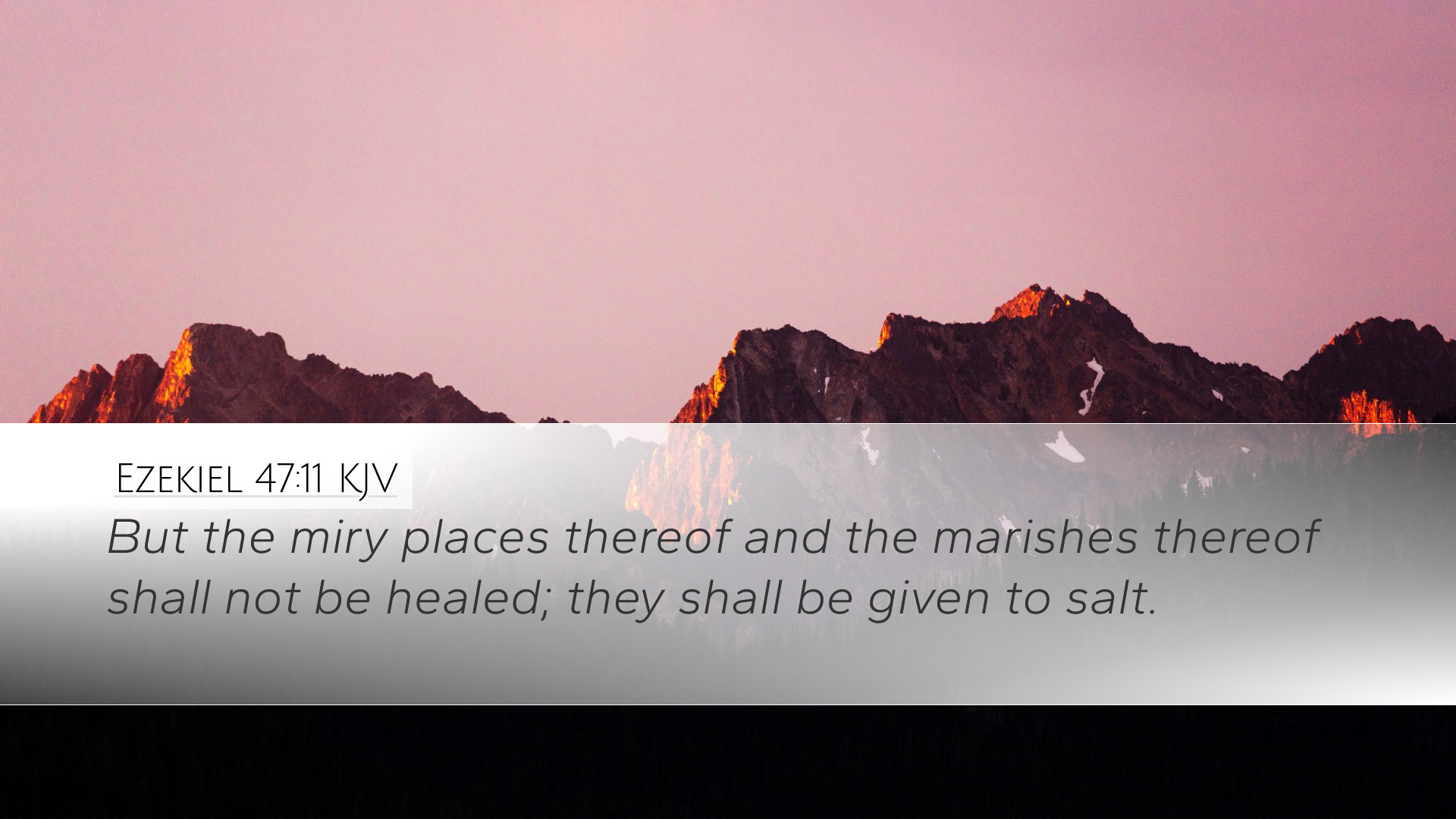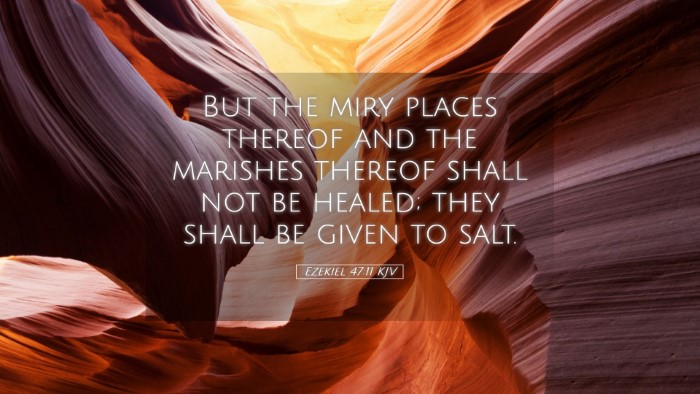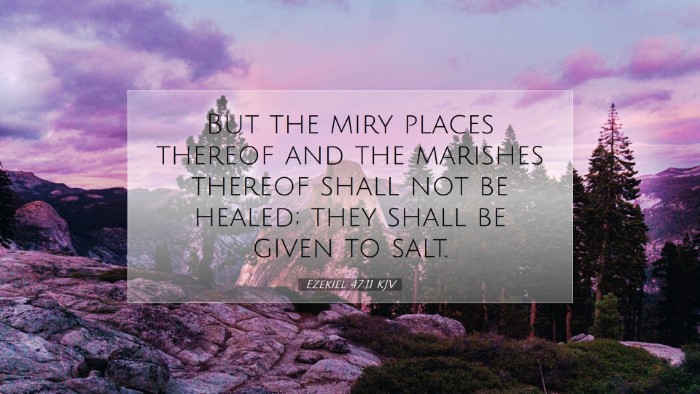Ezekiel 47:11 Commentary
Bible Verse: "But the miry places thereof and the marshes thereof shall not be healed; they shall be given to salt."
Introduction
Ezekiel 47:11 is a part of the prophetic vision given to Ezekiel concerning the restoration and future glory of Israel. This verse reveals contrasting aspects of God's healing and judgment. In the broader context, the imagery of water flowing from the temple signifies life, healing, and restoration; however, this verse emphasizes the areas that remain unhealed.
Exegesis of the Verse
The verse identifies "miry places" and "marshes," symbols of stagnation and barrenness. Herein, Ezekiel speaks to the fate of those who do not partake in the life-giving waters represented by the presence of God. The reference to these areas remaining "given to salt" underscores the theme of judgment—salt signifying desolation and the inability to yield fruit or life.
Commentary by Matthew Henry
Matthew Henry notes that the divisions within the waters signify the division between those who are receptive to God’s grace and those who resist it. He interprets "miry places" as indicative of areas in one’s life that are not wholly sanctified by divine influence. Henry’s observation leads to a spiritual application; believers should seek to be fully immersed in God's healing grace, lest any part of their lives be left under judgment.
Commentary by Albert Barnes
In his commentary, Albert Barnes highlights the geographical significance of the marshes in Ezekiel’s vision. He elaborates on the idea that stagnant waters are incapable of supporting life, reflecting the spiritual death that ensues when one turns away from God. Barnes emphasizes the necessity of constant renewal and the pursuit of holiness to avoid the fate of the miry places.
Commentary by Adam Clarke
Adam Clarke interprets the "miry places" as symbols of moral decay and spiritual barrenness. He draws parallels to the state of human hearts that remain unresponsive to God’s call for redemption. Clarke’s analysis encourages readers to engage introspectively and consider the areas in their lives where they may become complacent or resistant to God’s transformative work.
Theological Insights
-
Contrast Between Life and Death:
The flowing waters contrasted with the dry, salty marshes stylize the critical theological theme of life in Christ versus death in sin. The verse serves as a poignant reminder that while God offers restoration, rejection of it leads to desolation.
-
The Universality of God's Call:
God’s offer for healing extends to all, yet not all accept it. The miry places signify the tragic outcome of those who ignore God’s provisions, reinforcing the universal need for engagement with God's grace as revealed in Christ.
Practical Applications
For pastors, students, and theologians, this verse invites a deep reflection on personal and communal areas that may be marked by spiritual stagnation. It stirs questions regarding how the church may at times reflect the conditions of the "miry places" and encourages proactive revitalization through the Spirit’s power.
-
Self-Examination:
Believers should regularly self-examine for areas that may be resistant to God's grace and seek divine guidance for healing.
-
Community Engagement:
Churches are called to foster environments where the flow of God’s Spirit can lead to transformation, ensuring that no part of the spiritual life becomes stagnant.
Conclusion
Ezekiel 47:11 serves as a sobering reminder of the realities of spiritual life. While the waters signify divine healing and revitalization, the miry places represent the life abandoned to desolation due to resistance to God’s grace. Ultimately, this verse challenges all believers to actively engage with God’s restorative work in their lives and communities, embracing the life-giving waters that flow from the presence of the Lord.


